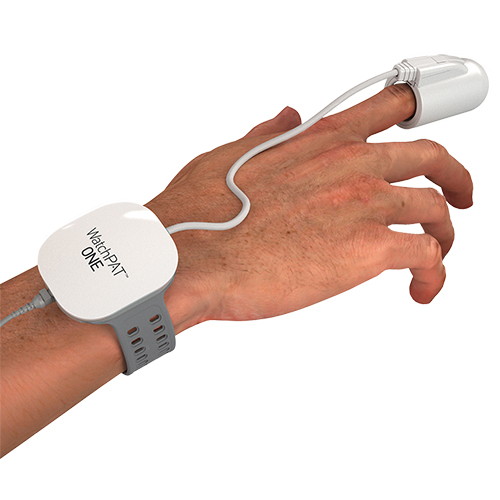Fact Checked
Intus Healthcare’s writers, customer service team, and sleep experts review and ensure this information is accurate.
Last updated on April 2nd, 2024 at 10:56 am
Most of us will wake several times during the night and do not realise it as we settle back to sleep so quickly. The time spent awake can be less than a few seconds in duration. However, this is not the case for everyone.
Waking up at the same time at night can be in response to various factors, including sleep disruptions, stress, diet, and even underlying medical conditions. Fortunately, there are several solutions which can help alleviate this issue.
Table of Contents
Why can’t I stay asleep?
If you are someone who keeps waking up at 3 am and struggles to settle back down to sleep, stress is likely the cause. Stress can appear in many forms, from your lifestyle to the medication you may be taking.
The cycle of stress makes staying asleep increasingly difficult. The more stressed you are, the harder it is to relax and the more tired you feel the next day. We’ll help you reduce the stress so you stop waking up at 3 am, resolving your sleep issues.

Nocturia
Nocturia is a condition defined by needing to urinate numerous times throughout the night. It could be the result of high fluid intake, an enlarged prostate, pregnancy, medication, or an overactive or prolapsed bladder.
Nocturia is commonly confused with a condition called overactive bladder (OAB). Nocturia refers to waking up at night to urinate, while OAB encompasses frequent and urgent urination and potential incontinence.
Those with Nocturia tend to produce a normal amount of urine, but the volume increases during the night.
Doctors will advise you to reduce your caffeine and alcohol intake initially to help reduce the frequency of awakenings. But Nocturia can also be treated with medications and lifestyle changes. Other contributing factors to Nocturia include menopause, obesity, diabetes, kidney disease, kidney failure, kidney stones, urinary tract infections or congestive heart failure. Let’s explore how you can manage nocturia to help you stay asleep during the night.
Solutions
- Keep hydrated: Staying hydrated is important; however, limit fluid intake in the hours leading up to bedtime. This will help to reduce the need to urinate at night.
- Monitor medications: Some medications can contribute to nocturia. If you suspect your medication is causing this issue, consult your healthcare provider to discuss potential alternatives.
- Limit your sodium intake: High sodium intake can lead to fluid retention. Be mindful of your salt intake and try to opt for low-sodium foods.
- Manage underlying conditions: Treating any of these underlying issues can help alleviate nocturia.
- Bladder training: Gradually extending the time between bathroom breaks can help your bladder adjust and potentially reduce nighttime urination.
- Medication effects: Certain medications, including beta-blockers, antidepressants, ADHD drugs, decongestants, and steroid-containing breathing treatments, can impact sleep patterns. If your medication is affecting your sleep, you should address this with your GP.
- Digestive problems: Acid reflux and symptoms of irritable bowel syndrome (IBS) can lead to pain and disrupt your sleep. If you think you have these conditions, you should seek treatment.
Remember that the effectiveness of these tips can vary based on individuals. We recommend discussing your symptoms with your healthcare provider to determine the best approach.
Anxiety and stress
Your stress and anxiety levels are likely the first thing to consider if waking up at 3 am is new to you. When your body experiences stress, it activates your sympathetic nervous system.
As a result, you may feel a jolting sensation waking you in the middle of the night. You could also experience an increase in your heart rate and blood pressure.
These fluctuations in your body can make it difficult to settle back to sleep and leave you feeling exhausted the next day. Stress levels can increase when something in your life is causing you to feel anxious or worried.
If stress is something which is impacting you, consider what the root of the cause could be. Commonly, stress is related to your relationships, finances, job or health.
If you feel that stress could impact your sleep, we recommend discussing it with your doctor. Therapies such as CBT (Cognitive Behavioural Therapy) or lifestyle adjustments, including activities like yoga and mindfulness, can also help.
Solutions
Managing anxiety and stress can significantly improve your ability to stay asleep. Here are some tips to help you achieve a more peaceful night’s sleep:
- Practice relaxation techniques: Engage in relaxation exercises such as deep breathing, progressive muscle relaxation, or mindfulness meditation before bed.
- Create a bedtime ritual: Establish a calming pre-sleep routine that signals your body that it’s time to wind down. This could include reading a book, taking a warm bath, or listening to soothing music.
- Limit screen time: Reduce exposure to electronic devices like phones, tablets, and computers at least an hour before bed. The blue light emitted by screens can interfere with the production of sleep-inducing hormones.
- Write in a journal: Keep a journal to jot down your thoughts, worries, and feelings before bed. Writing out your concerns can help you release anxious thoughts.
- Limit caffeine and alcohol: Both caffeine and alcohol can disrupt sleep and exacerbate feelings of anxiety. Limit consumption, especially in the hours leading up to bedtime.
- Sleep aids: Women may experience nighttime awakenings due to hormonal fluctuations. These typically occur during menstrual cycles or menopause, causing hot flushes or night sweats.
Some women who have trouble sleeping may use over-the-counter sleep aids such as melatonin to help with this. You read more on women in our Do women need more sleep than men article.
Remember that finding the right combination of strategies may take time and experimentation. Be patient and consistently implement these techniques to reduce anxiety and stress, improving sleep quality gradually.

Insomnia
Waking up throughout the night or struggling to fall asleep can leave you feeling exhausted the next day. Regular occurrences could indicate you are experiencing insomnia. Insomnia is a common sleep causing trouble falling asleep, staying asleep, or experiencing non-restorative sleep. Those with medical conditions and depression are particularly at risk for insomnia.
Insomnia tends to be more common among older adults due to changes in sleep patterns. As we age, the time it takes to fall asleep often increases, while the duration and the amount of time spent in bed decrease. Additionally, older adults may find themselves waking up earlier than desired. The AASM has found that:
- 30 to 35% have brief symptoms of insomnia.
- 15 to 20% have a short-term insomnia disorder lasting less than three months.
- 10% have a chronic insomnia disorder, which occurs at least three times per week for at least three months(1).
Solutions
Managing insomnia and improving your ability to stay asleep involves lifestyle changes and creating a conducive sleep environment. Here are some tips to help you manage insomnia and achieve a more restful night’s sleep:
- Establish a consistent sleep schedule: Go to bed and wake up at the same time every day, even on the weekends. It helps regulate your body’s internal clock, improves sleep quality and helps to ensure you don’t wake up frequently during the night. Ensuring your bedroom is cool, dark and quiet can make it easier to fall asleep. You can use curtains, blinds, an eye mask or ear plugs if needed to help you settle to sleep and prevent waking up during the night.
- Bedtime anxiety: If you can’t fall asleep within thirty minutes, leave your bedroom and choose a calming activity. Activities include reading, yoga, gentle cleaning or listening to music to help you fall asleep. By doing this, you can prevent associating the bed with anxiety.
- Exercise regularly: Engage in regular physical activity during the day, but avoid intense workouts close to bedtime. When you exercise, you elevate your core body temperature, which signals the body clock that it’s time to be awake. After about thirty to ninety minutes, the core body temperature starts to fall. The decline helps to induce the feeling of sleepiness.
- Manage your stress daily: Practice stress-reduction techniques like mindfulness, meditation, or deep breathing. Doing these during the day can help ease anxiety that may contribute to insomnia.
- Be mindful of clock-watching: Avoid constantly checking the time when you wake up during the night. Doing this can increase anxiety and make it harder to fall back asleep.
- Chronic pain relief: Conditions like arthritis, heart failure, sickle cell anaemia, or cancer can cause discomfort during sleep. Speak to your GP if this is a concern, as they may be able to prescribe pain relief medications. Some medications may help you, but you should always consult your doctor before trying any new medications.
- Cognitive behavioural therapy for insomnia (CBT-I): CBT-I can help you manage negative nighttime thoughts and actions. Typically, CBT-I is equally or more effective than sleep medications and is worth investigating.
It might take time to see significant improvements, so be patient and stick to these strategies. You should see a gradual improvement in your sleep quality.
What is middle Insomnia?
If you wake up every night, it could be a specific type of Insomnia you are experiencing. Middle Insomnia, also known as middle-of-the-night Insomnia, is when it is difficult to stay asleep. This can lead to frequent awakenings at night. The constant sleep interruptions can significantly impact daily functioning and overall well-being.
The consequences of middle-of-the-night Insomnia go beyond immediate mental and physical effects. Research indicates persistent Insomnia can increase the risk of developing chronic health conditions over time.
If you have been diagnosed with middle Insomnia, it is essential to seek treatment. Proper interventions can help improve sleep quality and ultimately enhance the overall quality of life. A healthcare professional can provide the appropriate treatment to manage the symptoms of middle-of-the-night Insomnia.
Sleep Hygiene
Your lifestyle choices can also impact your sleep. Not maintaining good sleep hygiene risks frequent nighttime awakenings and difficulty falling asleep. Consider changes to your bedtime routine. Try the following, and you should find some improvement in your sleep.
Solutions
- Switch off electronic devices: Limiting your screen time before bed can improve sleep quality. The blue light from electronic screens disrupts the production of melatonin, an essential hormone that regulates sleep cycles. The body’s circadian rhythm relies on light signals to establish sleep patterns and wakefulness. To benefit the most, you should stop using electronic devices for at least ninety minutes before bedtime.
- Diet: Your body requires diverse vitamins and nutrients to perform and feel your best daily. These essential components support overall well-being and contribute to a more consistent sleep pattern.
- Choosing better dietary choices will help you wind down, and the quality of your sleep should improve. Opt for foods which are rich in tryptophan, as they have natural sleep-inducing properties. However, before making any significant changes to your diet, it is advisable to consult with a professional. For example, a nutritionist can provide tailored dietary guidance.
- Reduce naps: Taking naps for longer than twenty minutes can make it harder to fall asleep and disrupt your body’s internal clock. Limiting the duration of your naps and avoiding taking them too close to bedtime is advisable.
- Environment: To enhance your sleep hygiene, reserve your sleeping area solely for sleep and intimate activities. Engaging in other tasks can establish a mental link that hinders relaxation. Removing distractions and going to bed when you genuinely feel tired are additional measures to enrich your sleep environment.
- Room Temperature: The temperature within your bedroom can impact the quality of your sleep. Having a cooler room temperature can make it easier to sleep. The recommended temperature is usually around eighteen degrees Celsius for achieving restful sleep. While personal preferences might vary slightly, most healthcare experts recommend keeping the thermostat set between fifteen to twenty degrees.
- Sleep Schedule: Creating a steady sleep routine allows the body to restore itself at night. Aim to sleep and wake up every day, even on weekends. A muddled sleep schedule can hinder the ease of falling asleep and increase stress levels. Sufficient sleep will also facilitate waking up early, ensuring you are well-rested.
- Daylight exposure: Immersing yourself in natural light triggers your brain to initiate the day’s activities. Aiming for around twenty minutes of daylight helps wake you up and readjust your circadian rhythm. You might even integrate this practice into your daily exercise routine to enhance your sleep quality.
Respiratory Issues
Experiencing nighttime respiratory disruptions is common for individuals with orthopnea, asthma, Sleep Apnoea, or other breathing issues like allergies or a cold. Bronchitis and other lung diseases can also cause breathing difficulties that intensify at night, affecting sleep quality. Brief breathing interruptions can disturb you and create difficulties in settling to sleep again.
Solutions
- Take medication before bed: Your doctor may prescribe certain medications to help your respiratory issues and improve your sleep. Taking medication an hour before you sleep helps your body wind down so you can comfortably fall asleep.
- Relieve your airways before going to sleep: Use a face steamer or a hot shower with some eucalyptus essential oil drops on the floor to open your airways. As the steam rises in the shower, the oil can help ease your airways.
- Consider your sleeping position: If you feel you are waking up gasping for air during the night, it could be a sign of Sleep Apnoea. Some people find sleeping on their side helps to keep their airways open, preventing nighttime disturbances. You can also use specially designed pillows to support your neck and head.
- Change your bed sheets weekly: Unclean sheets have the potential to trigger or exacerbate symptoms of allergies or asthma. To avert a congested nose and other sleep-disrupting symptoms, replacing your sheets every week is advisable.
- Keep windows closed at night: Irritating air pollutants could affect your respiratory health. If you suffer from allergies, closing your window at night can help prevent air pollutants from disrupting your sleep.
- Try a humidifier: Use a humidifier to keep the air moist and help you stay asleep throughout the night. Low humidity levels can exacerbate your cold symptoms and lead to dryness in your nose and throat. Use a humidifier to maintain optimal moisture in the air, helping you to ensure that your sleep is uninterrupted.

Obstructive Sleep Apnoea
Obstructive Sleep Apnoea, or OSA, is a very common condition where the walls of your throat relax and become narrow during sleep.
As a result, this interrupts normal breathing and causes you to wake up during the night. When someone experiences an Apnoea event, they may feel like they are choking, snorting or gasping for air.
This is due to the lack of oxygen that triggers your brain to wake you from sleeping so your airways can re-open to allow you to breathe. People who experience OSA can also experience:
- Snoring
- Feeling excessively tired during the day
- Morning headaches
- Night sweats
- Waking up frequently during the night for toilet breaks
- Feeling depressed or anxious
- Having poor memory and concentration.
- Teeth grinding at night
OSA can be caused by having large tonsils or adenoids, age, weight, a deviated septum, a small jaw or a large tongue.
Persistent daytime fatigue significantly impacts various aspects of your life, including relationships, engagement in hobbies, and performance at work. Insufficient sleep can also reduce immune function, making you more susceptible to frequent illness and prolonged recovery periods.
Additionally, those with Obstructive Sleep Apnoea face a higher risk of premature death. The physical effects of this condition contribute to inflammation in the body, which is known to be the cause for numerous chronic diseases. For example, OSA increases the likelihood of developing type 2 diabetes, glaucoma, asthma, liver damage, and congestive heart failure.
Sleep Apnoea amplifies the chances of experiencing heart attacks and strokes, which can complicate pre-existing health conditions. In pregnancy, Sleep Apnoea can lead to complications such as pre-eclampsia, gestational diabetes, and high blood pressure.
In extremely rare cases, Sleep Apnoea can result in fatal choking during sleep. As a result, inadequate sleep can lead to drowsiness while driving, significantly increasing the risk of motor vehicle accidents. Anyone with Sleep Apnoea is more likely to be involved in traffic accidents than those with normal sleep patterns (2).
How to get tested for Obstructive Sleep Apnoea
If you keep waking up at 3 am and you think it’s due to OSA, it may be beneficial to undergo a Sleep Test. We offer confidential, efficient, and reliable testing services. Approximately eighty-five per cent of the UK population suffering from Obstructive Sleep Apnoea remain undiagnosed(3). Therefore, obtaining a Sleep Test is a proactive step towards addressing your sleep-related concerns.
If you require further assistance or advice regarding Obstructive Sleep Apnoea, please feel free to contact us for support.

Test for Obstructive Sleep Apnoea
Our In-Home Sleep Test is a quick and reliable way to confirm if you have Sleep Apnoea.
The device records your sleep and monitors your body position, blood oxygen levels, heart rate and Peripheral Arterial Tone. Your data is then sent to one of our NHS-trained sleep technicians to examine your data. Your results will be sent to you in as little as two working days.
Summary
There are many reasons why you wake up at 3 am every night, but exploring what the cause could be will help you establish the best course of treatment. Sleep is essential for your health and well-being, so it should be prioritised. If you think you could have Sleep Apnoea, take our In-Home Sleep Test or contact us for more advice
Articles which may interest you
References
- AASM (2019) Insomnia awareness day facts and stats, Sleep Education. Available at: https://sleepeducation.org/insomnia-awareness-day-facts-stats/ (Accessed: 31 July 2023).
- Simon, D. for B.B. (2018) Sleep apnoea – 15% of vocational drivers could be undiagnosed, Driving for Better Business. Available at: https://www.drivingforbetterbusiness.com/articles/sleep-apnoea-15-of-vocational-drivers-could-be-undiagnosed/#:~:text=Studies%20have%20shown%20that%20when,to%20be%20of%20increased%20severity. (Accessed: 31 July 2023).
- BLF (2015) Obstructive sleep apnoea (OSA) – asthma + lung UKBL, Obstructive Sleep Apnoea (OSA). Available at: https://www.blf.org.uk/sites/default/files/OSA_Toolkit_2015_BLF_0.pdf (Accessed: 31 July 2023).




